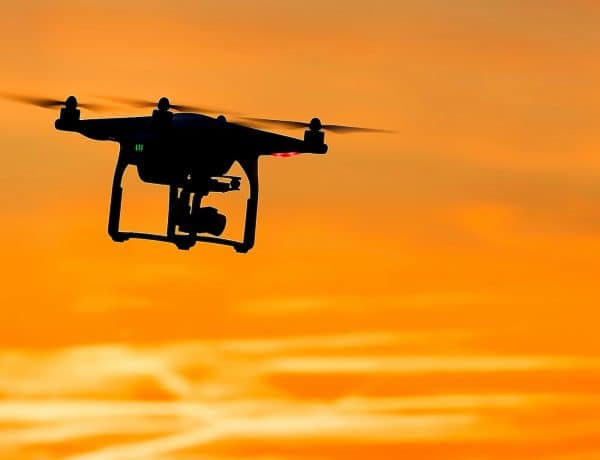The US Department of Transportation recently revealed its plans to use blockchain or distributed ledger technology (DLT) when working with drones.
The agency, which is a federal Cabinet department of the US government concerned with transportation (established by an act of Congress on October 15, 1966, and began operation on April 1, 1967), noted:
“Blockchain technology is being looked on to deliver a framework that can be used by stakeholders in the commercial drone industry.”
It mentioned that DLT-enabled platforms can offer several advantages or benefits in key areas, including conflict management, security, ID management, flight authorization and air traffic management.
The transportation department pointed out several potential blockchain use cases for drones, also called unmanned aircraft systems (UASs).
For instance, DLT may be used for streamlining medical deliveries, enhancing military strike capabilities. The agency explained that drones are robotic air bots that are able to run by themselves, or via remote human intervention.
The agency added:
“The number and variety of UASs and the diverse operations they are or may be expected to soon be involved in making these aircraft especially suitable to the trust and operational integrity provided by blockchains.”
Unmanned aircrafts come with a certain element of liability, as nobody is actually physically present on these small rigs to ensure that their processes are working smoothly and as intended.
The agency’s report noted that DLT-based systems can “add trust with the use of policies and protocols.”
It claims that there are many potential areas in which blockchain or DLT may provide improved safety, such as for conducting aircraft communications, tracking and for managing crowded area protocols.
The report confirms that blockchains have been used “to address some UAS trust and integrity issues.”
Governments are able to examine previous drone-related accidents after they’ve taken place, by using flight data recorders. If blockchain is integrated with such systems, then this data could be tracked more effectively, the agency argues.
It adds:
“A blockchain-based flight recorder would do so in real time and could also allow law enforcement to be proactive instead of reactive. One company has proposed a blockchain-based black-box UAS system that would enable industry regulators to track and review drone flight data, insurance companies to insure drones based on reliable third-party data, and pilots to ensure compliance with regulators.”


